Why are the guerrillas Jesús Santrich in prison?
- Yours is the 26 isolation cell. La Picota, high security in Bogotá, is incarcerated in the Bogotá prison. He has been blind for ten years because of Leber's syndrome, and he also has diabetes. However, they have it isolated in total isolation. He was born with the name of two Greek painters, Seuxis Paucias Hernández Solarte, although he is better known for his use as anonymous war, Jesús Santrich.

He was one of the commanders of the Caribbean Bloc of the guerrilla FARC-EP for three decades and a member of the Central Staff. Santrich is also a writer, musician, painter and historian. Besides being one of the negotiators in the Havana talks, he participated in the drafting of the Agreements. From the department of Atlántico, he was elected Congresswoman of Colombia. But these days will be a year when he was an architect of the Accords in an isolation cell. Let us explain, albeit briefly, the context.
The Havana Agreements are based on a deep-rooted political conflict. Although the historical reasons are many, the social, political and armed conflict has its origin in land and rural development. The insurgency guerrilla group FARC-EP was founded in 1964 by 48 peasants who rose up in the face of the repression and bombardment of the peasants of Marquetalia. In the context of this social majority that lived at the foot of the anti-democratic bipartisanship and the economic elite, the guerrillas were born in response to misery and repression and fed for half a century thanks to the farmers, the afros, the indigenous and the most committed citizens.
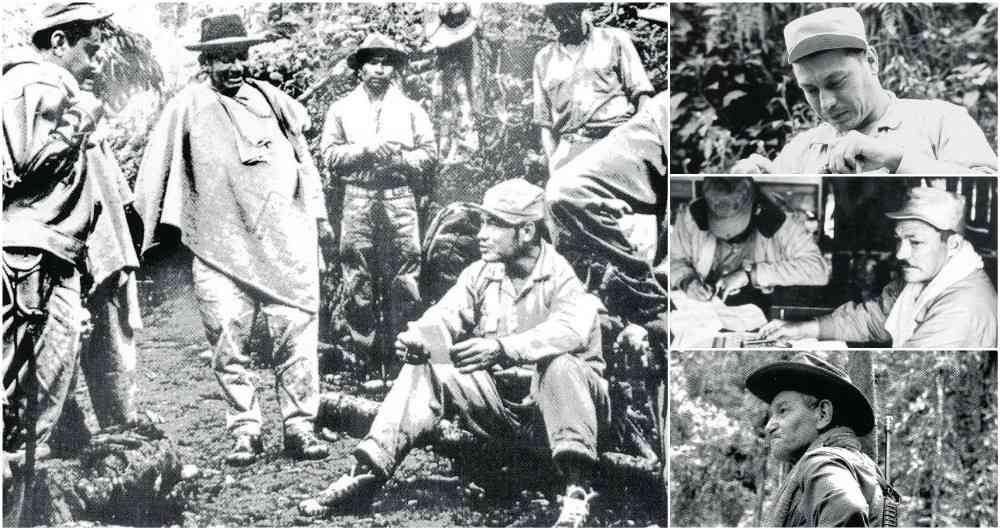
For five decades, all Colombian generations have known an open internal war. Data are raw: 262,000 deaths, 80,000 missing, 10,000 false positives, 6 million internally displaced… According to the most belligerent or negotiating position of the government in turn.
After going through three negotiation processes (La Uribe 1982-1987, Tlaxcala 1992, San Vicente del Caguan 1999-2002), the Colombian state has developed war strategies with the insurgency (FARC-EP, ELN, M-19, EPL, Quintín Lame …), from assimilation to annihilation. In the turn of the twentieth century, with the expansion of the FARC-EP guerrillas, both by the guerrillas (more than 30,000) and by the occupation of the territories (until the area of Bogotá), Uribismo launched the “Plan Colombia” with the help of the United States. Its main objective was to destroy the guerrillas in collaboration with paramilitarism, while having a clear geopolitical objective, as it allowed the United States to take root its political, economic and military interventionism throughout South America. The seven military bases that were built witnessed this. But despite all the imaginable violations of human rights, even dividing the peasants with chainsaw, this offensive did not manage to put an end to the rebels and their support.
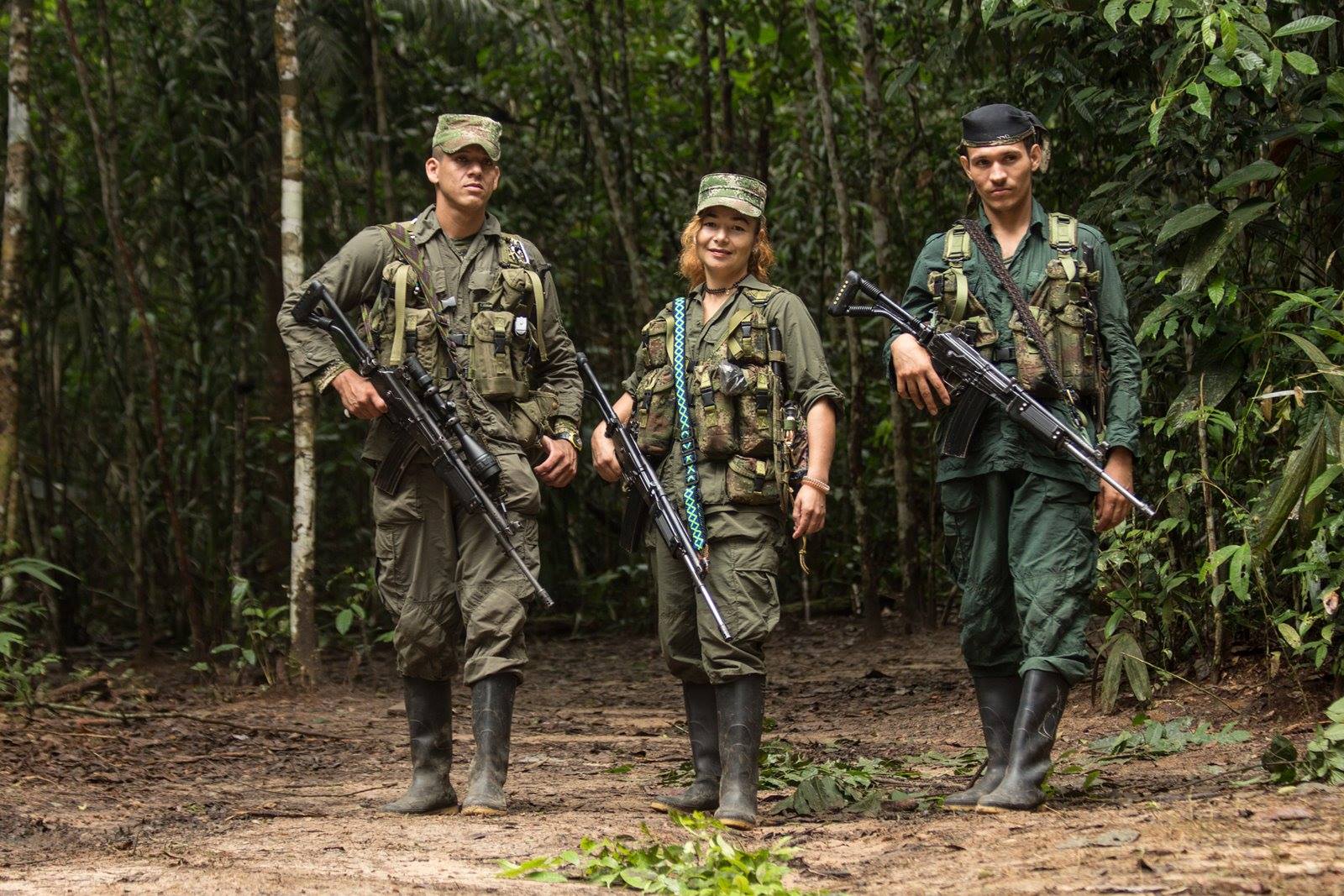
As he did not achieve the results that sought the total confrontation of the paramilitary Uribe, then came the Colombian oligarchy representing the governments of Santos and, with the reflection and decision of the great entrepreneurs, entered into peace negotiations with the guerrillas of the FARC-EP. Discouraged by the military victory and after the conclusion that an endless draw damaged more than its class interests.
Soon after the signing of the Havana Accords, however, Uribism returned to the Government by the hand of Duque. The far-right parapolitics of the Civic Center, which it represents, has sought since the beginning to sabotage the Agreements, as they live from conflict and conflict, and on the other hand, because they want to continue hiding their criminal implication before the Truth Commission and the Special Title for Peace (JEP).
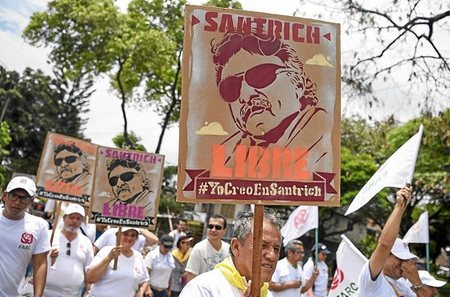
In the context of innumerable violations of the Agreement of the two Governments (which I will explain in a second more specific article), the United States launched a repressive machinery against those who most pointed to those responsible, carrying out illegal military operations and anti-agreements to arrest Ivan Márquez, Oscar Montero, Romagna and others, who have since been “hidden”, and detained for false accusations.
Colombia's High Prosecutor, Néstor Humberto Martínez Neira, involved in numerous cases of corruption and well-known opposition to the Havana Accords, conducted a police assembly aimed at Santrich, with the help of the infiltrate agency DEA of the United States. Under the false accusation of having sent ten tons of cocaine to the United States, Santrich was imprisoned pending extradition. Although they know perfectly well that the fate of Jesus Santrich is entirely linked to that of the Peace Accords, since, in addition to being one of the main negotiators, his extradition to the United States would become a precedent for all the guerrillas.
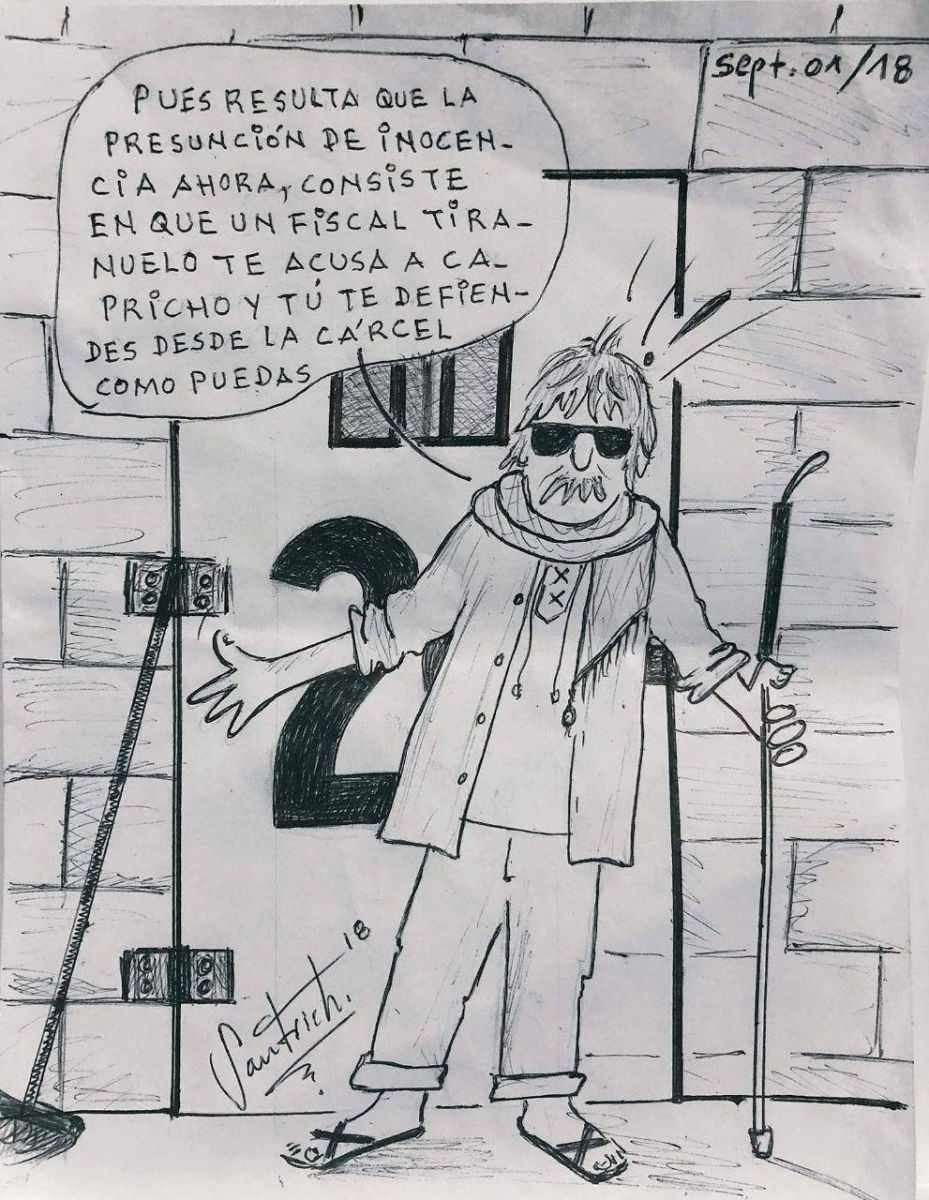
From the outset, Santrich went on an indefinite hunger strike until, contrary to the wishes of the corrupt prosecutor, his cause was transferred from ordinary jurisdiction to the JEP. This meant that the JEP could analyse its cause and introduce it into the validity of the evidence, unlike the ordinary extradition procedure. After analyzing the JEP's alleged tests against Santrich in the New York Court, where there are no causes in Colombia, all the videos, audios and tests disseminated by the prosecutor with the help of the media have remained in nothing, as the U.S. ambassador acknowledged. There was no cocaine, no Sinaloa signs (they were infiltrated by the DEA), no recorded reviews on the theme of Santrich. Since then, Santrich’s freedom remains entrenched in the political struggle between supporters and opponents of the Agreements, Uribism uses the issue to delegitimize and modify the JEP.
Meanwhile, pending the final decision of the JEP, Santrich remains chained to the judicial bureaucracy. Upright, dignified, as an enthusiastic defender of the dream of a new Colombia and sworn in Bolibar that it will not survive them. Santrich is currently, for those who would like to eliminate it, the exponent of the memory of what was agreed in Havana.
For all these reasons, I call for the freedom of all political prisoners in Colombia, Simon Trinidad, imprisoned in the United States by these French tellers, and Jesus Santrich, in cell 26 of La Piedad. Even though an entire ocean moves us away, internationalism and some righteous ideals unite us.
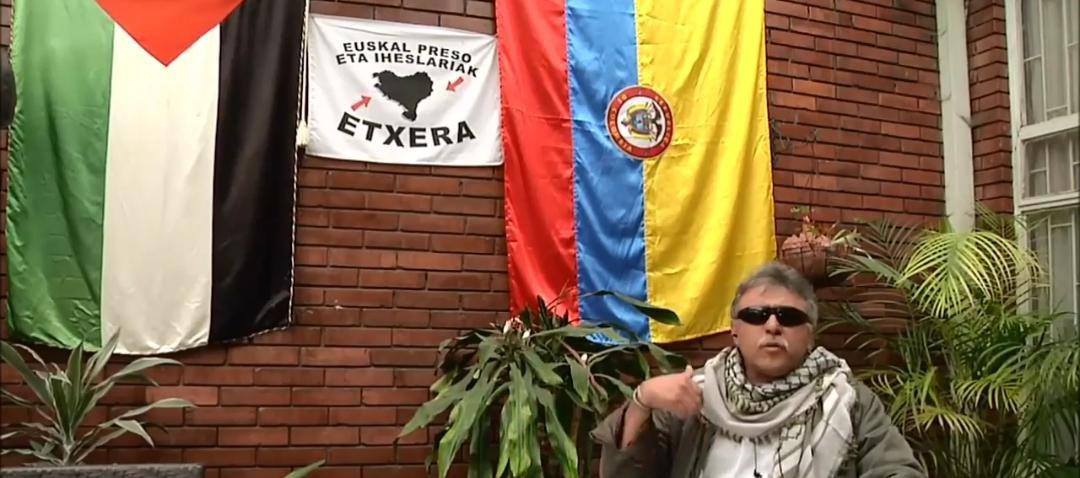
In these terrible and exemplary days for the Kurds, we cannot fail to mention the indefinite hunger strike being carried out by the seven thousand political prisoners of the PKK and the PAJK, demanding that the isolation of Öçalan be put to an end, breaking the fascism of government of the AKP and the freedom of Kurdistan. History is written in resistance.
* Iurdan Martitegi Lizaso is a Basque political prisoner. Tomorrow we will publish the second article on the tragic trajectory of the Havana agreements.
More information about Jesus Santrich:
Bidali zure iritzi artikuluak iritzia@argia.eus helbide elektronikora
ARGIAk ez du zertan bat etorri artikuluen edukiarekin. Idatzien gehienezko luzera 4.500 karakterekoa da (espazioak barne). Idazkera aldetik gutxieneko zuzentasun bat beharrezkoa da: batetik, ARGIAk ezin du hartu zuzenketa sakona egiteko lanik; bestetik, egitekotan edukia nahi gabe aldatzeko arriskua dago. ARGIAk azaleko zuzenketak edo moldaketak egingo dizkie artikuluei, behar izanez gero.
I found the old news on the LIGHT ephemeris channel: On April 23, 1918, Irish workers went on a general strike in I. Against forced recruitment for World War II. Thanks to the response of the workers and independence supporters, Britain was forced to retreat.
We don’t have to... [+]
“Even with all the shortcomings, the unions have done more for humanity than any other human organization that has ever existed. They have contributed more to dignity, honesty, education, collective well-being and human development than any other association of people.” ... [+]
Automatizazioaren eta abereen inguruan kuxkuxeatzen ari nintzela, ukuilu automatizatuen informazioa hasi naiz eskuratzen. Nire idazmahaiaren erosotasunetik idazten, gizakion kontsumorako modu masiboan esplotatzen ditugun abereen bizitzak nahiko penagarriak direla iruditzen zait,... [+]
Errepikatu nirekin: Sara Millerey. Ez dezagun ahaztu bere izena. Transfeminizidioaren biktima da Millerey: gorrototzaile transmisogino batek torturatu zuen, besoak moztu zizkion eta bizirik bota zuen ibaiertz batera. Bi orduko agoniaren ondoren hil zen.
Errazagoa da J.K... [+]
Zenbait urtetatik hona sarri entzuten dugun kontzeptua da zaurgarritasuna. Gaur gaurkoz, diskurtso politikoetan pertsona zaurgarriez aritzea ohikoa da. Seguru nago nik ere inoiz erabili dudala berba hori Bizilan.eus webgunean, eskubide laboralak eta prestazio sozialak azaltzeko... [+]
It seems possible to measure happiness. There are even those who insist on it. The UN is not very successful in maintaining world peace, but it shows in an annual report how such a quality is distributed across the planet. It is basically a list, staggered from country to... [+]
On Sunday, May 11, we have an appointment in the Plaza del Rekalde (Bilbao) to announce that all the people who live in Basque cities and towns have a census. This action is part of a broad campaign that promotes that no one living in our municipalities is without a census. In... [+]
Duela urtebete eskas Espainiako aireportuen sarea kudeatzen duen AENA enpresa publikoak iragarri zuen Loiuko aireportuko terminala handitu nahi duela. 2024an 7 milioi bidaiariren langatik gertu gelditu zen eta, handitzeak aurrera eginez gero, 2030. urtetik aurrera 13-14 milioi... [+]
Rearm Europe. Reindustrialize to defend Europe. This is the agenda that the political leaders of the European Union have been trying to promote lately, through the White Paper on European Defence, the BirArm Europe and the 2030 Availability plans. The excuses for the promotion... [+]
You may not know who Donald Berwick is, or why I mention him in the title of the article. The same is true, it is evident, for most of those who are participating in the current Health Pact. They don’t know what Berwick’s Triple Objective is, much less the Quadruple... [+]
The article La motosierra puede ser tentadora, written in recent days by the lawyer Larraitz Ugarte, has played an important role in a wide sector. It puts on the table some common situations within the public administration, including inefficiency, lack of responsibility and... [+]
Is it important to use a language correctly? To what extent is it so necessary to master grammar or to have a broad vocabulary? I’ve always heard the importance of language, but after thinking about it, I came to a conclusion. Thinking often involves this; reaching some... [+]


















